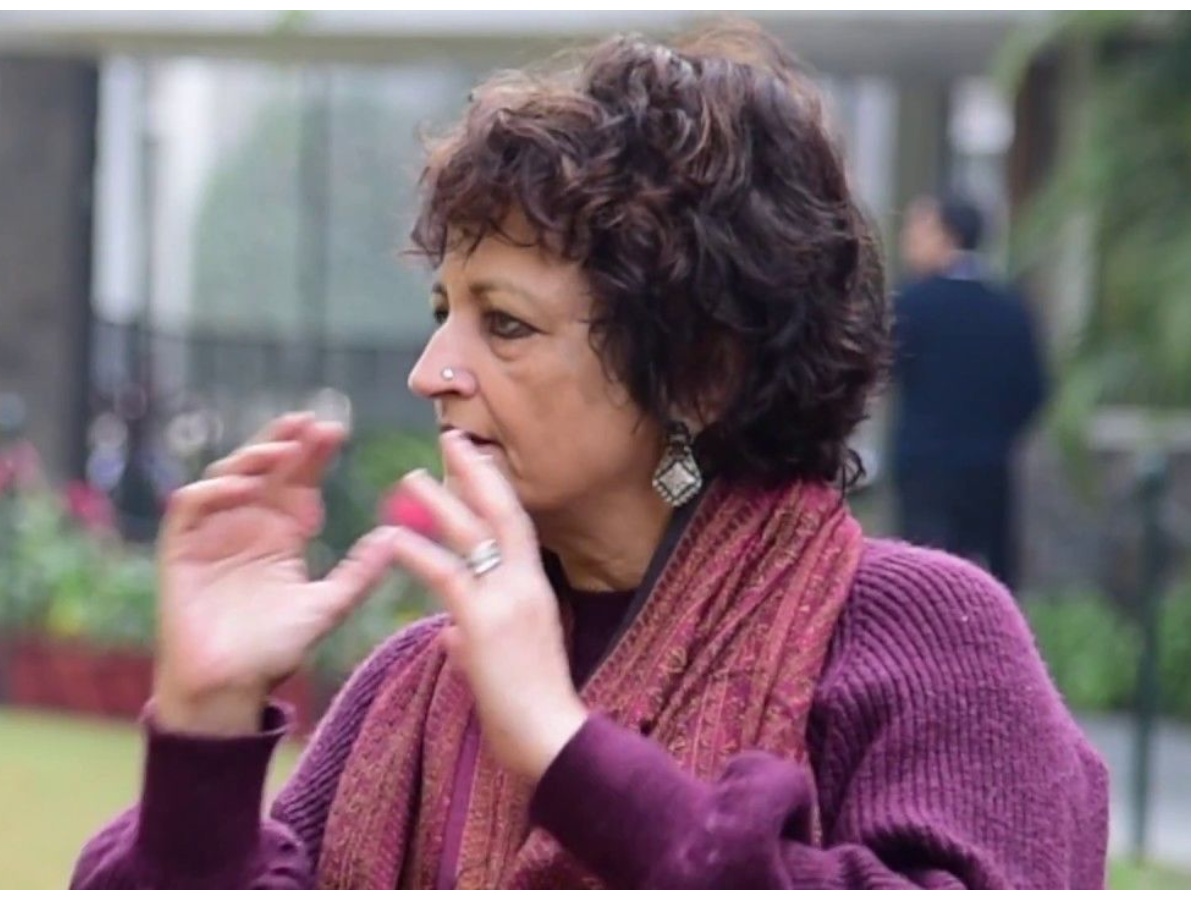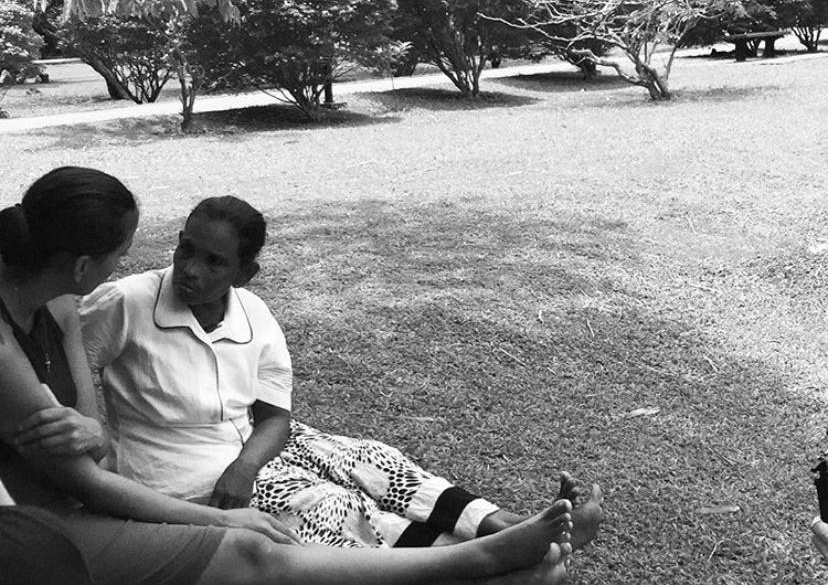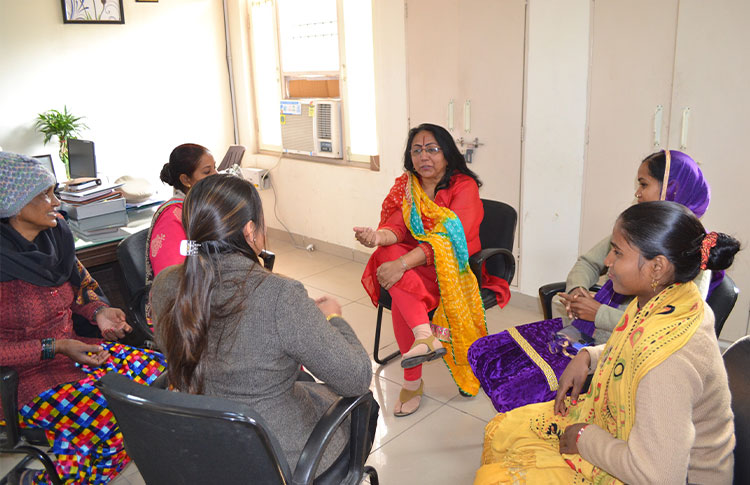Rupan Deol Bajaj Hails #MeTooIndia, Recollects How She Fought Against Sexual Harassment 3 Decades Ago
- IWB Post
- October 17, 2018

“Today the women speaking out have safety in numbers. When I called out the behaviour of Mr. Gill, I stood all alone, threatened with death, slander, given punishment postings and a blighted career,” says retired IAS officer Rupan Deol Bajaj, delighted as #MeToo devours the sexual predators of the country.
Speaking on the #MeToo wave in India, she says, “I am so gratified to see so many women coming out to talk about their trauma. Many are doing so years after they were harassed. Make no mistake, this is the most difficult and courageous thing for a woman to do and no one can doubt her when she finally decides to speak.”
Bajaj adds, “Donald Trump is saying, “This is a scary time for men.” I say this is a scary time only for those who were at it with impunity for years. Women, who are 50% of the population are believing the #Me Too stories because similar things have happened to most of them at some point of time or the other. It resonates with their own experiences. Majority of men in society are good, but we also know this to be true.”
Bajaj’s enthusiasm for #MeTooIndia stems from the fact that women in India finally have a platform where they can call out lecherous men for their misdemeanors, which sadly wasn’t the case when she fought to take down her assaulter almost three decades ago.
While women today are fearlessly naming and shaming the powerful men of the country for sexual harassment, it wasn’t like that in the Punjab of 1988, even when the person raising the complaint was a senior civil servant herself.
Recollecting how it all transpired, she shares, “This was an official party at the house of the home secretary of Punjab and Mr. Gill was present in his uniform. The entire top bureaucracy of Punjab was there and Mr. Gill called me to come and sit on the chair next to him. I went and was about to sit when he pulled the chair close to himself. Sensing something amiss, I went back to the group where I was sitting. After ten minutes, he came and stood so close to me that his legs were four inches from my knees. He made an action with the crook of his finger asking me to stand and said, “You get up. You come along with me.””
Bajaj strongly objected to his behaviour and even repudiated him for the same but that didn’t make him budge even a bit. She shares, “He repeated his words like a command and said, “You get up! Get up immediately and come along with me.” I looked at the other ladies, all of whom looked shocked and speechless. I felt apprehensive and frightened, as he had blocked my way and I could not get up from my chair without my body touching his body. I then immediately drew my chair back about a foot and half and quickly got up and turned to get out of the circle through the space between mine and another lady’s chair. Whereupon he slapped me on the posterior. This was done in the full presence of the ladies and guests.”
However, what was worse than the Director General of Police in Punjab sexually assaulting a senior level IAS Officer right in the middle of a gathering was that fact that no one paid any heed to the case when Bajaj raised it.
Even when Bajaj immediately raised the matter to the home secretary who was present at the party, no action was taken. In fact, as Bajaj shares “years later when the home secretary was called to corroborate the events of the evening, he did not tell the court that I had repeated my complaint in the presence of K.P.S. Gill within minutes of the incident, while Gill was swaying and hearing every word of what I said.”
She was told by the chief secretary R.S. Ojha, “Rupan these things keep happening. You are not diminished. Consider yourself lucky, it could have been worse.”
When Bajaj finally went to the police as a last resort, V.N. Singh, the inspector general of police (who also happened to be a witness of Gill’s misconduct at the party) registered the complaint but followed it by putting it into an envelope and sealing it. On being questioned by Bajaj for the same, he said, “It is my duty to register your complaint, which I have done, but what I do with it after that is entirely up to me. We will investigate only when you get a mandamus from the court.”
“Once I drafted the FIR and gave it to the police and the media, I felt liberated and unburdened from the fear of the world coming to know about it. I was an empowered woman but the system and society were conspiring to disempower me. My family and I received death threats. People would call up and say you will disappear and no one will hear of you again. Remember, this was the Punjab of the ’80s when mysterious disappearances were the order of the day,” Bajaj says, recollecting the horrors.
It took her years to win justice for herself. “I secured a conviction under the archaic Sections 354 and 509 of the Indian Penal Code; the two sections under which no one had ever filed a case since 1860 when the British first drafted the IPC,” shares Bajaj.
She adds, “My case has set a precedent which will benefit them all. For a change, women are being believed. They should not back down at all, and if M.J. Akbar and others say they will take them to court, let them fight it collectively; but they must not compromise.”
Speaking on how the #MeToo movement can benefit from her case, Bajaj explains, “Firstly, the court has defined ‘modesty’ for the first time in my case as it applies to these two sections of IPC. Secondly, the court has laid down that to prove such matters, one witness is enough and the victim herself is the best witness, as long as she is being truthful. Thirdly, in every crime, the prosecution has to prove the intention of the accused. But here it was held that there is no need to prove intention, but just his knowledge of having acted indecently is sufficient to prosecute a person. Fourthly, the court set a time limit of six months in which to complete the trial, so as to ensure that the victim is not deliberately tired out in long-drawn litigation.”
She adds, “The difference now is that none of these women need to take the men to court. They’re having the courage to speak on social media which is enough for everyone to believe them. It is the single most important validation of the truth. If the accused man goes to court, then my precedent gives them ample ammunition to fight it there.”
H/T: The Wire
- 0
- 0












